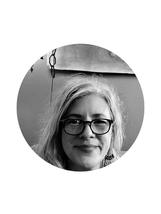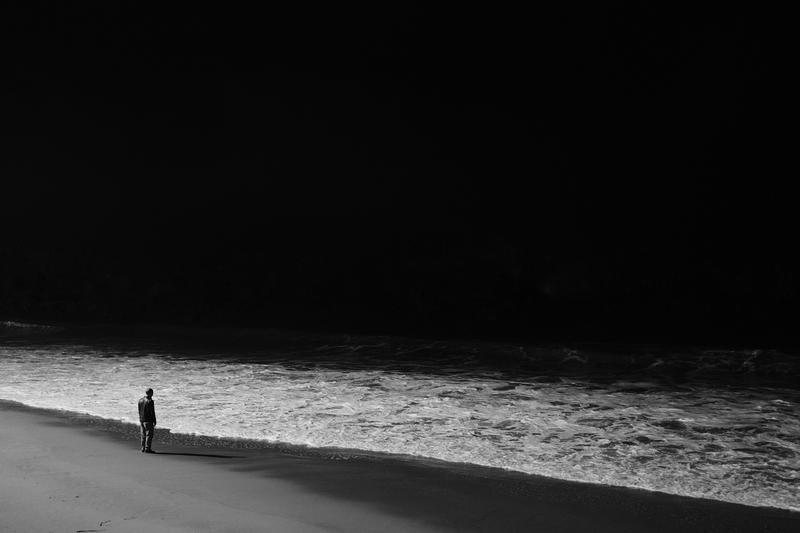by Allisa Cherry
January 14, 2025
The Ocean in the Next Room by Sarah Schweig; Milkweed Editions; 104 pages; $18.00.
Selected by Cynthia Cruz as the winner of the 2023–2024 James Adam York Prize — a distinguished collaboration between Copper Nickel and Milkweed Editions — Sarah Schweig’s The Ocean in the Next Room has garnered advance praise for its intellectual stamina and emotional ramifications. Reflecting on her selection, judge Cynthia Cruz remarked, “This extraordinary collection of poems does that strange thing Hegel tells us all great art does: In his lectures on aesthetics, Hegel tells us that art makes appear the structures that would otherwise remain invisible to us.” Through a series of interconnected pieces, Schweig’s second full-length book vivisects the complexities of our contemporary existence in poetry that is inventive yet accessible. Her writing artfully captures the sense of remove and isolation that defines much of our current moment, offering a profound observation of our existence within the Anthropocene era without condescending to offer a path forward.
The Ocean in the Next Room immediately establishes itself as a collection contending with the ongoing dilemma of the human soul slogging it out in the marketplace during late-stage capitalism. The book begins in medias res with the line “And then I went to seek The Great Unity,” referencing a utopian political philosophy of Chinese origin in which everyone works for the collective and, because everyone’s needs are met, everyone is safe and happy. The speaker works for an unnamed company in an unnamed municipal building and lives with an unnamed man. In the end–disillusioned perhaps, definitely wiser–the speaker states, “I thought I’d find The Great Unity. It seems there is none.” This “un-naming” is a recurring device Schweig deploys throughout the book to great effect in The Ocean in the Next Room. The subjects of the poems are simultaneously familiar and slightly destabilized by Scweig’s distancing use of generalized details like locations and names. This coupled with the voice in these poems, one that is consistently quiet, steady, and cool, heightens the pre-collapse anxiety that more and more fills our digital feeds, as in the poem “Five Skeins” :
The fall of a city is a thing I watch
thanks to advances in technology. The city is being
blown to pieces, buried in history.
Sometimes I stay up late sheerly to see
Perhaps the most remarkable feature of The Ocean in the Next Room is a crown of 31 sonnets called “Unaccompanied Human Voice” which explores the Covid-19 pandemic and its accompanying lockdown. Opening with the speaker walking in “wider and wider circles” (which might call to mind Yeats’ “Second Coming”) the reader is pulled into the all-too-familiar angst-tinged tedium of shuttered restaurants, empty streets, Zoom calls, masked faces, the inability to travel to see our loved ones, and news reports on rising death tolls. The speaker observes in these sonnets how nature might become paramount stripped of human presence and how she even feels relieved at the beginning of the “dreadful stillness.” This poem truly highlights the poet’s deftness with form and how it can shore up an idea (for example writing a crown about a virus named for its crown). The meter and rhyme here are delicate and come in and out of focus so the marching forward feels more dreamlike, less militant. Schweig also uses repeating lines and images that create the effect of mimicking the tedium of days stripped of variety and contact:
Half a country away my mother circles a lake twice
In a port city, my father translates ancient lines.
My mother circles, recording herons with her device.
Just now my husband lies down to rest his eyes.
Twice daily my mother tracks various flocks.
For hours my father troubles over translation.
This poem is the pandemic anthem we deserve precisely because Schweig is witnessing not just the scope and scale of the catastrophe but how impossibly unchanged we are by it when she writes “what we take from the dreadful stillness isn’t much/ unlike what we took from the usual noise, now// bleeding back into life as if it just is life as such.”
There is a thread of something that fronts as hope woven through the starkness of these poems (though the word “hope” is insufficient) in the consideration of procreation within the context of the untenable machinery of late-stage capitalism. Very early in the collection in “Poem on My Birthday,” Schweig writes “I am 35 and thinking about the idea// of having a child./ We light lights in the dark.” The argument to have a child is revisited at greater length in “Unaccompanied Human Voice.” As the speaker teases out the threads of isolation, watches connections strain and dissolve during the pandemic lockdown, she and her husband debate having a child. The poem asks “Is that what you really want? To enter life/ by creating it?” and later in the crown Schweig writes, “To this meaningless suffering my love and I/ consider adding our genetic material.” By the end of the collection, there is a baby in the poems, an infant son, held up and considered against the bleak backdrop of homeless encampments being swept, algorithms deciding what we know, and Palestinian children dying in Gaza. In “The Blue House” Schweig writes, “These days I look at my son and feel the terror/ of love. And then I don’t feel a thing.” It is up to the reader to decide if continuance is hope or hubris or something else entirely.
In an article in The New School News, Schweig indicates that she wrote much of The Ocean in the Next Room while studying philosophy. The reader of this work will benefit greatly from the way her studies have shaped a poetic collection that interrogates the dissonance of our current moment and challenges us to confront our own place within its fractured landscapes. Ultimately, The Ocean in the Next Room refuses to offer any resolutions, instead allowing readers to wrestle with the tensions it so thoroughly illuminates. Schweig’s ability to clearly see this moment while leaving space for individual interpretation marks this collection as not just a testament to her intellectual capacity but also a vital contribution to contemporary poetry. Whether through the masterful sonnets of “Unaccompanied Human Voice” or the recurring considerations of technology, procreation, and writing what is true, Schweig holds up a mirror to our lives, asking us to consider the systems we participate in and also how — and why — we continue.
__________________________________________________________________________________________________________________________________________________________________________
__________________________________________________________________________________________________________________________________________________________________________
__________________________________________________________________________________________________________________________________________________________________________
The Dreadful Stillness of Sarah Schweig’s The Ocean in the Next Room
POETRY REVIEW
Image by @carokotojo_gle (IG)
Allisa Cherry grew up in a rural community in an irradiated desert in the southwest of the United States. She has since relocated to the Pacific Northwest where she teaches workshops for immigrants and refugees transitioning to a life in the US and recently received her MFA from Pacific University. Her poetry has received Pushcart and Best of the Net nominations and can be found in High Desert Journal, West Trade Review, The Maine Review and Rust + Moth. Work is forthcoming at The Columbia Review.
__________________________________________________________________________________________________________________________________________________________________________
__________________________________________________________________________________________________________________________________________________________________________
© 2024 Iron Oak Editions
Stay Connected to Our Literary Community. Subscribe to Our Newsletter





